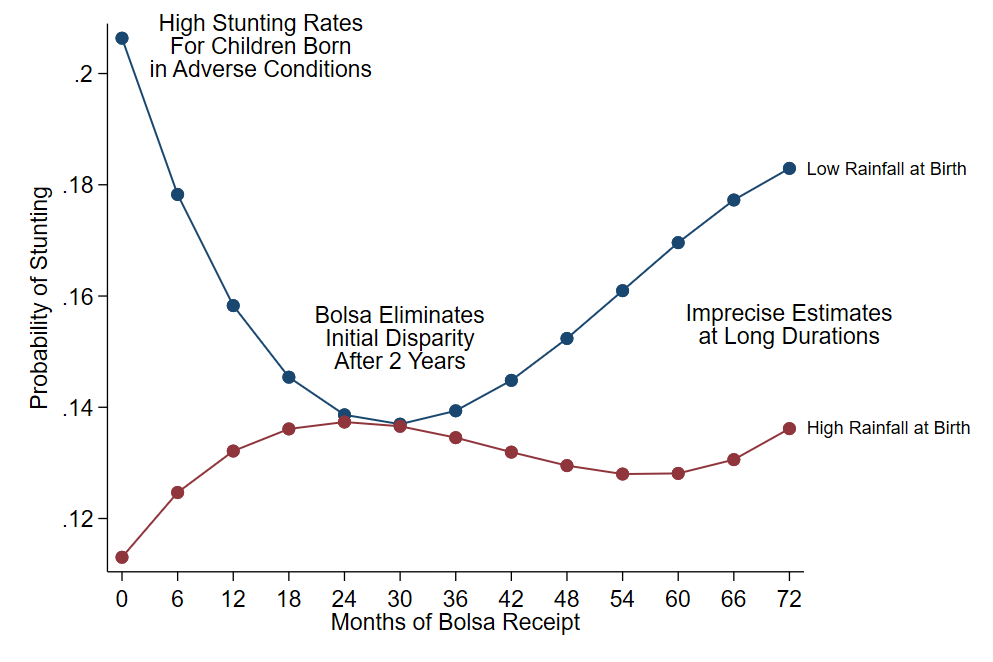Early-Life Shocks and Childhood Social Programs: Evidence of Catch-Up in Brazil
with Dylan Fitz
Published in Journal of Development Studies, 2023
Published version available here. Accepted version available here. BibTeX citation available here.
A replication package is available here. The replication package relies on data provided by Brazil’s Ministério do Desenvolvimento Social e Combate a Fome and publicly available data found here.
Abstract: Early-life shocks often produce negative long-run consequences lasting into adulthood, but little is known about how childhood social programs interact with early-life environments. In this paper, we analyze the effect of early-life conditions on child health and evaluate whether access to a conditional cash transfer program is differentially effective among children who experienced adverse early-life events. We use variation in delays in enrollment from the rollout of Brazil’s Bolsa Família program to analyze the impact of longer treatment durations alongside variation of in utero rainfall to determine the potential for the program to drive catch-up growth. We find that the duration of Bolsa treatment impacts stunting, obesity, and other health outcomes, with the program being most effective among children whose in utero conditions predisposed them to worse health outcomes. Finally, we find that these effects are driven by children who receive Bolsa before age five and that girls experience more health gains. Overall, the duration of treatment matters, with some effects only appearing after one to two years of transfers, as does the timing of treatment, with some effects only appearing for younger initial recipients.
I was interviewed about this project by Faculti, with the interview available here.

